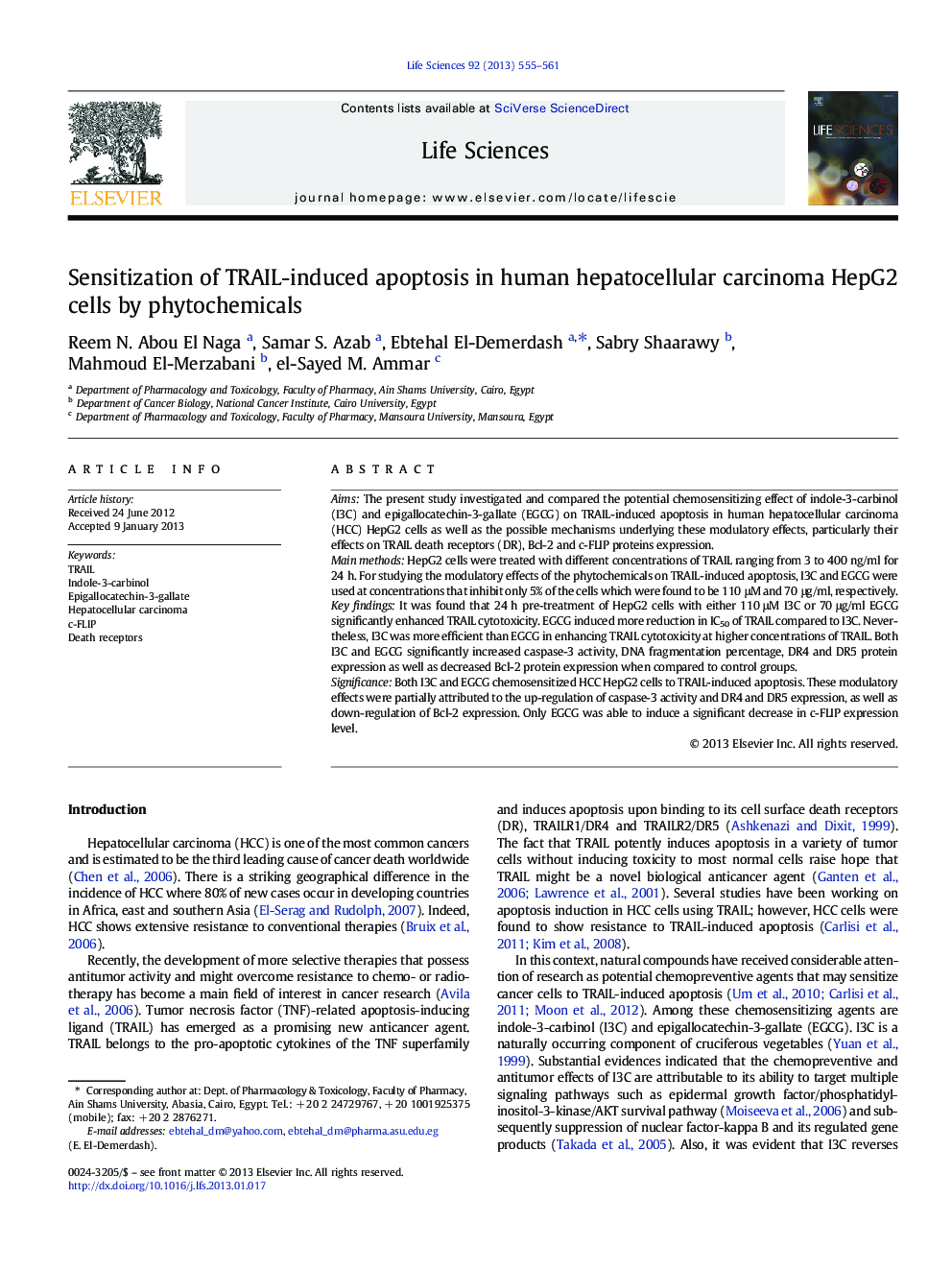| Article ID | Journal | Published Year | Pages | File Type |
|---|---|---|---|---|
| 5842651 | Life Sciences | 2013 | 7 Pages |
AimsThe present study investigated and compared the potential chemosensitizing effect of indole-3-carbinol (I3C) and epigallocatechin-3-gallate (EGCG) on TRAIL-induced apoptosis in human hepatocellular carcinoma (HCC) HepG2 cells as well as the possible mechanisms underlying these modulatory effects, particularly their effects on TRAIL death receptors (DR), Bcl-2 and c-FLIP proteins expression.Main methodsHepG2 cells were treated with different concentrations of TRAIL ranging from 3 to 400 ng/ml for 24 h. For studying the modulatory effects of the phytochemicals on TRAIL-induced apoptosis, I3C and EGCG were used at concentrations that inhibit only 5% of the cells which were found to be 110 μM and 70 μg/ml, respectively.Key findingsIt was found that 24 h pre-treatment of HepG2 cells with either 110 μM I3C or 70 μg/ml EGCG significantly enhanced TRAIL cytotoxicity. EGCG induced more reduction in IC50 of TRAIL compared to I3C. Nevertheless, I3C was more efficient than EGCG in enhancing TRAIL cytotoxicity at higher concentrations of TRAIL. Both I3C and EGCG significantly increased caspase-3 activity, DNA fragmentation percentage, DR4 and DR5 protein expression as well as decreased Bcl-2 protein expression when compared to control groups.SignificanceBoth I3C and EGCG chemosensitized HCC HepG2 cells to TRAIL-induced apoptosis. These modulatory effects were partially attributed to the up-regulation of caspase-3 activity and DR4 and DR5 expression, as well as down-regulation of Bcl-2 expression. Only EGCG was able to induce a significant decrease in c-FLIP expression level.
